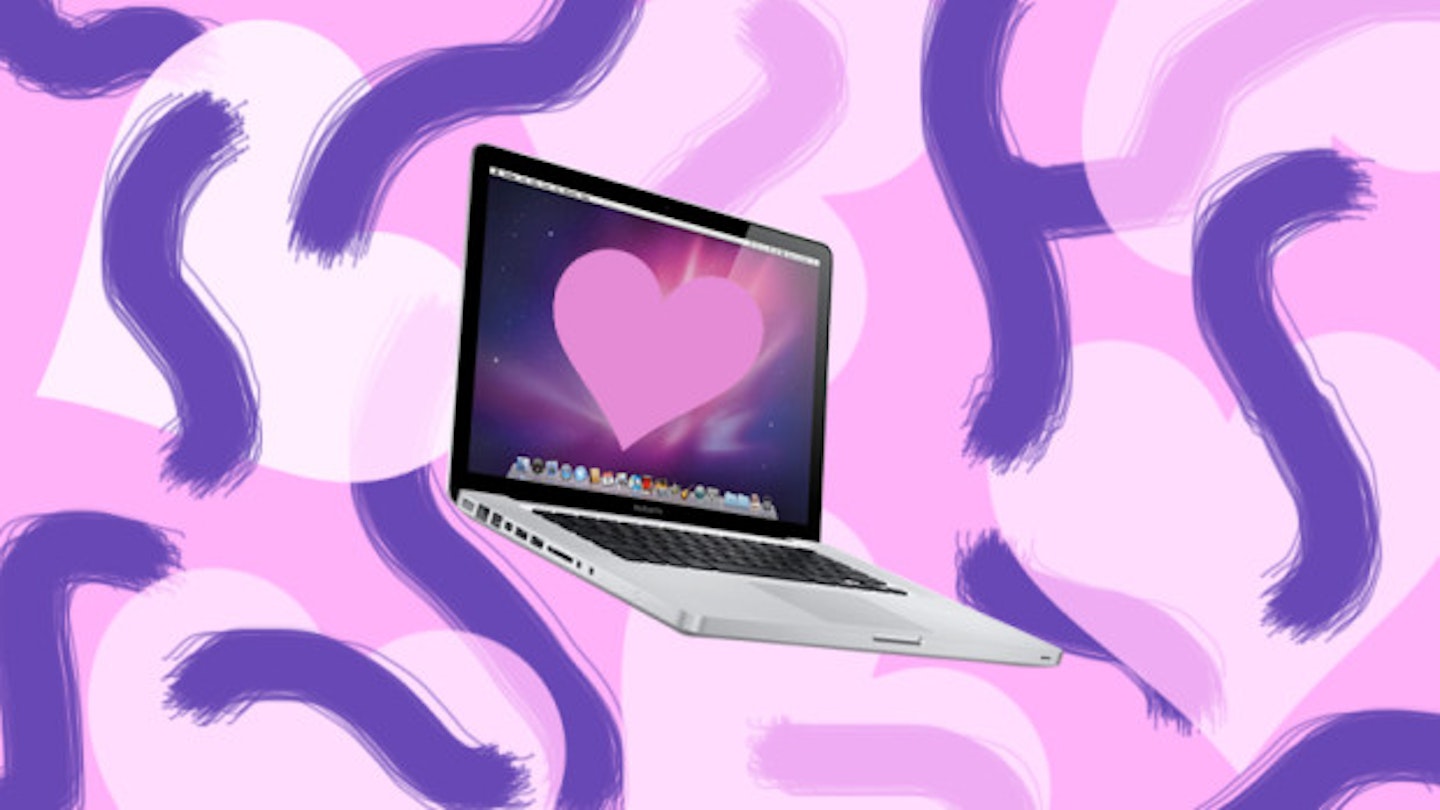Tinder has a reputation. It’s for quick no-strings-attached sex where girls field reams of horrible messages from grotesque guys who think it’s ok to approach a woman they’ve never met using the line: ‘Come over and sit on my face.’
That’s what Nancy Jo Sales, the esteemed Vanity Fair reporter (you need to read _The Bling Rin_g, stat) says with her article ‘Tinder And The Dawn Of The "Dating Apocalypse"’. According to her, the instant, constant offer of hook-ups to men is skewing dating culture and harming women in the process. She wonders: ‘Could the ready availability of sex provided by dating apps actually be making men respect women less?’
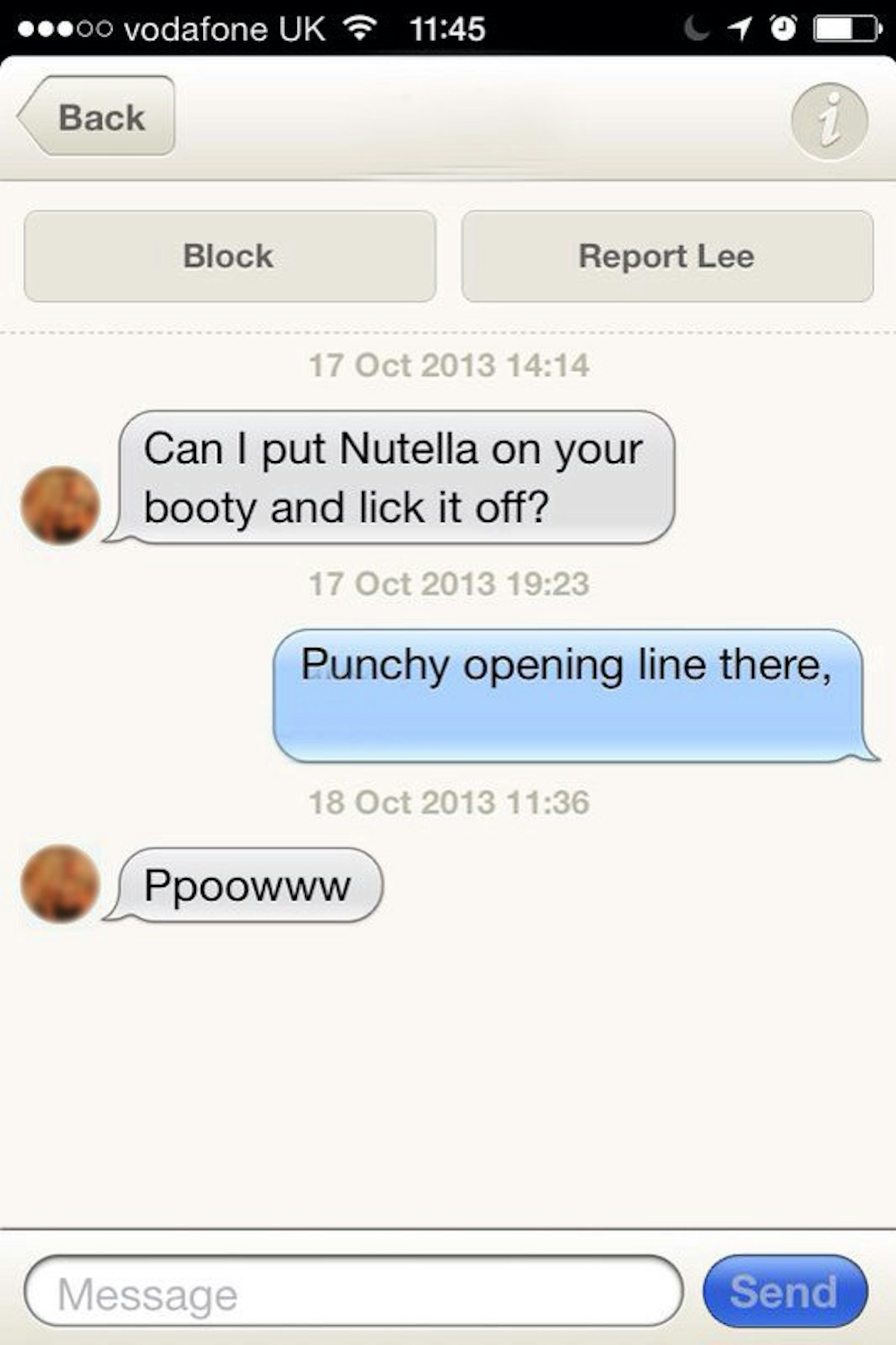
Is Tinder safe?
Nancy’s piece highlights some of the douchiest behaviour of New York’s Tinder-ers to give us an insight as to what happens when dating is turned into rack-’em-up point-scoring between boy-men who’ve grown up learning sex via porn and approaching real-life situations like they’re a video game.
Nancy’s investigation is valuable, and it’s no wonder it’s been shared around all of our Facebook and Twitter feeds for the past few days. It tells us something very profound about how supposed sexual liberation is being hijacked to make women feel a bit crap about themselves. But something tells me that dating apps aren’t the apocalypse of human interaction.
New York is just one place and its culture has always been very different to ours, long before Tinder arrived on the scene. Americans are infamously – and ear-splittingly, sometimes – outgoing compared to us, so it’s no surprise a hand-held shortcut to asking people out could’ve sent this confidence into hyperdrive. Plus, New York’s dating culture is one of legend, the yuppie consensus from the mid-’90s being that you date with the same blasé routineness as, say, taking the bins out. Maybe Tinder was just never going to work in that sort of environment. Meanwhile, straight British men, though not all mumbling, awkward Hugh Grants too shy to ask girls out, might have benefitted from dating apps giving them a head-start on asking someone out. Plus, Tinder’s USP (that you can only talk to people who’ve approved your profile) has given some guys the knowledge that not every girl up for a date is up for a date with them.
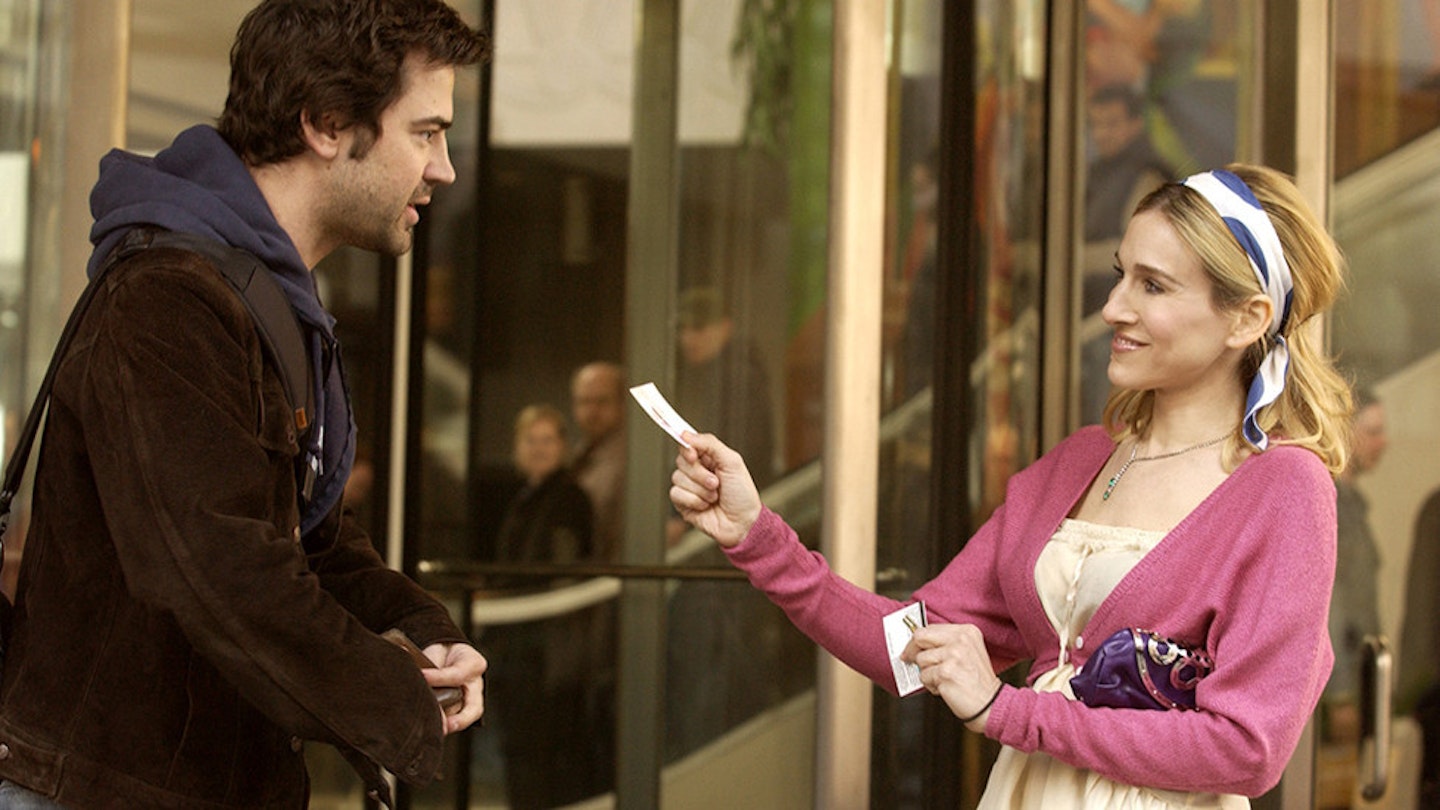
As for those guys who have none of Hugh Grant’s foppish charm? Even if your Tinder inbox reads like a list of kidnappers’ demands from various blokes who’ve somehow managed to type and swipe one-handed, at least your interactions with them go no further than the app. While it’s shocking that so many men will commit their creepiness to screengrabbable text, I get why Nancy’s female interviewees are unsurprised at this sort of language. After all, so many women have heard it all before, just in clubs. At least when you’re in the safety of your own home (bouncers aren’t necessarily trained in sexual harassment awareness) having a little sofa-bound swipe-athon, you can block a nuisance bloke from contacting you with a simple tap of the screen. If sleazes could be eradicated from clubs with such ease then, you know, maybe ‘IRL’ dating would be a bit less daunting for women.
Something tells me that dating apps aren’t the apocalypse of human interaction.
Was life better before Tinder?
At its root, everyone using dating apps is at risk of being creepy. We’ve taken our whole lives and condensed them into carefully designed and articulated packaged products to help sell ourselves to strangers. We’re complicit in boxing our entire selves into a one-size-fits-all swipe-able slide. But if technology is going to speed up every single aspect of our lives (some people can now control their central heating via an app!), why not let it speed up the rest of our lives?
To every person caterwauling that online dating apps have ruined the romance of people asking each other out face-to-face, go live in a wood cabin with no running water and hand-woven blankets for windows. Or just listen to me drone on about how I’d be a virgin or sadly closeted without the internet. Because for queer people – or anyone who’s got a niche sort of interest that might get in the way of them meeting a nice person from the post office – the internet is invaluable at locating other people just like you. It’s been vital in showing so many people – otherwise isolated or persecuted in the 'real' spaces they occupy – that they’re not alone. Which gives me hope that, with the right app, tinkered a bit to skew dating in favour of what women want, (remember, when if all the straight women leave Tinder, straight men will then be looking for an alternative) we could stop short of that dating apocalypse
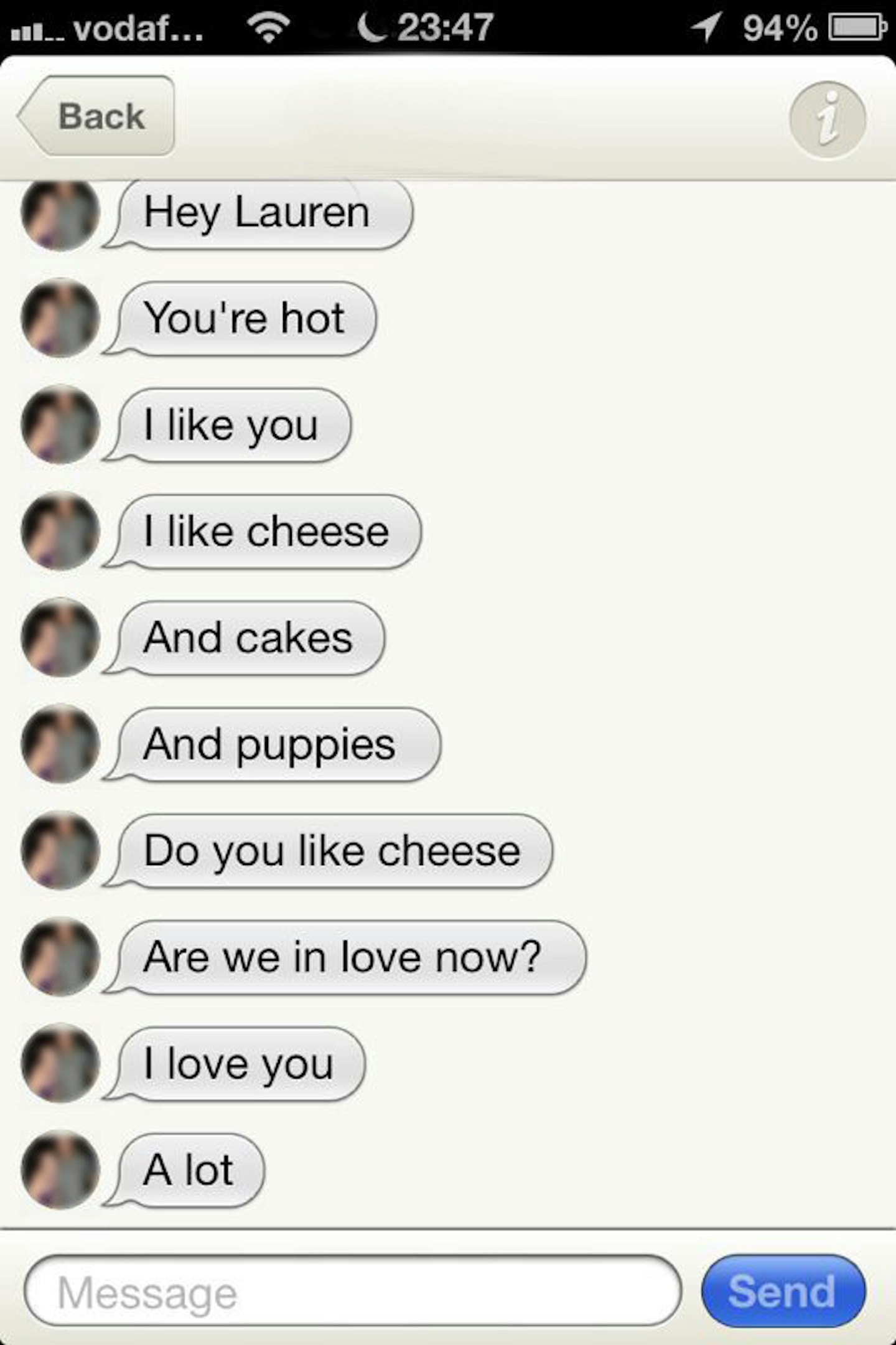
Not only can Tinder change (you're now only allowed a limited number of free right-swipes a day, stopping that male Tinder habit of just liking everyone in quick succession in a bid to get as many matches as possible), but all mobile technology can mould to what we want from it. If mobile technology can make us watch gigs through the blue screens of our phones, carefully arrange food so we can better Instagram it, and abandon black cats because they don’t show up that great on mobile phone cameras, it can change the way we date. Again, and this time for the better.
We can learn a lot about the changes that need to happen by looking at how the two sexes behave in isolation (regardless of sexuality, we all kind of feel the pressure to act how our gender dictates). Grindr, the once-popular gay dating app that paved the way for all the straight dating apps has become, over the years, increasingly full of people looking for quick hook-ups with white, straight-acting, muscular dudes. That doesn’t mean only those people are getting laid, though. Other apps like Hornet and Scruff have stepped in to replace it and provide a less hook-up oriented atmosphere. As for lesbians? While the ones based on gay-dating websites (Brenda’s the lesbian equivalent of Grindr) don’t get much chatter, Her is an app designed for women to meet based on events they attend and interests they might share.
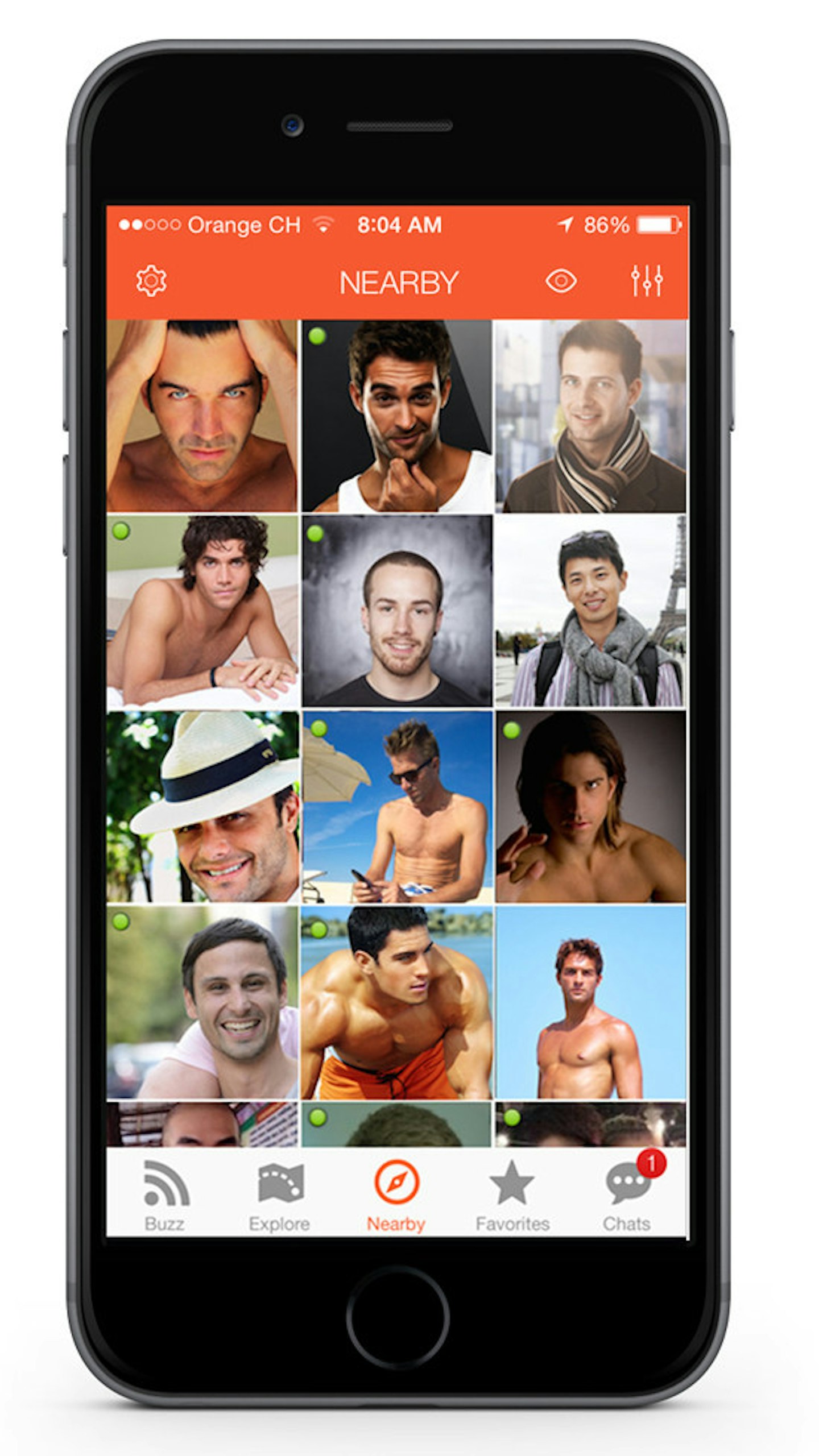
And now, to fill the spaces left by Tinder (too hook-up driven, full of nasty opening lines) and Happ’n (why would you use the fact you’ve both been on a train station concourse as the basis for dating someone?) there’s lifestyle networking app Huggle. This new app works by uniting people over shared location-based interests. In lay terms, instead of logging where you’ve commuted one morning and seeing who might have crossed your path, you can curate and select the sorts of places you like to go and then search for other people who go to those places.
As someone who could’ve met her girlfriend two years earlier on at least two different occasions when we were just feet from each other in the same venue, this app sounds incredible. What’s better, is that it doesn’t look like men and women are being treated like they’re from different planets. As Michelle Kennedy, a founding member of Huggle, explained to The Debrief: ‘We all know people want to meet new people. The question is how to do this is a relevant, and let’s face it, classy way. What better than meeting people you already know you have common ground with?’
'You’re less likely to receive an inappropriate picture or message from someone who is leading the same lifestyle as you – you might see them in your coffee shop next week'
‘The places you go to are a little bit about who you are as a person – all we’re doing is showing you people who we think you’re going to get on with. And, given that you’ve got stuff in common, it encourages good behaviour. You’re less likely to receive an inappropriate picture or message from someone who is leading the same lifestyle as you – you might see them in your coffee shop next week.’
By encouraging users to feel personally accountable for what they say and prioritise other people’s interests over the way they appear (before Tinder-style apps, where photos are paramount, online dating profiles were turgid fill-in forms full of details about favourite food, clubs, interests and hobbies), online dating could very well reform itself. And anything that encourages common bonds between the two sexes – beyond a shared enjoyment of hook-up apps – sounds so appealing (imagine being able to talk to someone after sex!) I might just have to go single again just to give it a try. If others follow suit, there might be an entirely different dating app apocalypse on our hands...
Like this? You might also be interested in:
Tinder Is Dead: How Did It Take Just Six Months For The Dating App To Go From Hero To Zero?
These People Prove That Tinder Isn't Just For Sex And Hookups
Follow Sophie on Twitter @sophwilkinson
Full disclosure: Sophie worked as a consultant in the development of Huggle
*Amendment, 18 December 2015: Huggles would like it to be known that their app is a lifestyle networking app based on the commonality of the places you go to, not a dating app. *
This article originally appeared on The Debrief.
